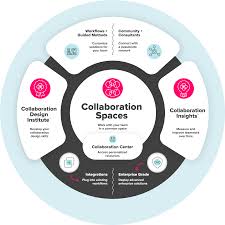Exploring Gender Studies: Understanding Identity and Equality
Gender studies is a multidisciplinary field that delves into the complexities of gender identity, roles, and relations in society. It seeks to challenge traditional notions of gender and explore how these constructs impact individuals and communities.
At the core of gender studies is the recognition that gender is not simply binary (male or female) but exists on a spectrum. It acknowledges the diversity of identities beyond the confines of biological sex, including transgender, non-binary, and gender non-conforming individuals.
By examining the social, cultural, political, and historical factors that shape gender norms and expectations, gender studies aims to promote equality and social justice for all genders. It sheds light on issues such as sexism, misogyny, patriarchy, homophobia, transphobia, and discrimination based on gender identity.
Through research, education, activism, and advocacy, gender studies seeks to dismantle oppressive systems and create a more inclusive society where individuals are free to express their gender identity authentically without fear of stigma or discrimination.
Furthermore, gender studies intersects with other fields such as sociology, psychology, anthropology, literature, history, and political science to provide a comprehensive understanding of how gender influences various aspects of human experience.
As we continue to progress towards a more equitable world where all genders are respected and valued equally, the insights gained from gender studies play a crucial role in challenging stereotypes, promoting diversity, and fostering empathy and understanding among individuals of all genders.
Exploring the Benefits of Gender Studies: Fostering Diversity, Awareness, and Equality
- Promotes understanding of gender diversity beyond traditional binary concepts
- Raises awareness about societal norms and expectations related to gender
- Empowers individuals to explore and express their gender identity authentically
- Challenges stereotypes and biases associated with different genders
- Advocates for equality and social justice for all genders
- Contributes to creating a more inclusive and accepting society
Critiques of Gender Studies: Exploring Concerns About Accessibility, Practicality, and Ideological Bias
- Some critics argue that gender studies can be overly focused on theoretical concepts and academic jargon, making it less accessible to the general public.
- There is a perception among some individuals that gender studies promotes a ‘victim mentality’ by emphasizing oppression and discrimination, which may lead to feelings of helplessness or resentment.
- Critics contend that gender studies programs may lack practical applicability in the job market, potentially limiting career prospects for graduates in this field.
- Gender studies has faced criticism for being too politicized, with some accusing it of promoting a specific ideological agenda rather than fostering open dialogue and critical thinking.
- Certain traditional or conservative viewpoints view gender studies as undermining traditional family structures and societal norms, leading to resistance or backlash against its teachings.
- There are concerns that gender studies can sometimes prioritize identity politics over individual merit, potentially creating divisions based on identity rather than fostering unity and collaboration.
- Some opponents of gender studies argue that it perpetuates a culture of victimhood and entitlement, discouraging personal responsibility and resilience.
Promotes understanding of gender diversity beyond traditional binary concepts
Gender studies promotes a deeper understanding of gender diversity by challenging traditional binary concepts of male and female. By acknowledging and exploring the full spectrum of gender identities, including transgender, non-binary, and gender non-conforming individuals, gender studies fosters inclusivity and acceptance. This proponent of gender studies encourages society to move beyond rigid categorizations and embrace the richness and complexity of human identity, ultimately paving the way for a more equitable and inclusive world where all genders are recognized and respected.
Raises awareness about societal norms and expectations related to gender
Gender studies plays a crucial role in raising awareness about societal norms and expectations related to gender. By examining and critiquing these norms, gender studies helps individuals understand how societal constructs influence our perceptions of gender roles and identities. Through this awareness, people are empowered to challenge traditional stereotypes, promote inclusivity, and advocate for a more equitable society where all genders are respected and valued.
Empowers individuals to explore and express their gender identity authentically
Gender studies empowers individuals to explore and express their gender identity authentically by providing a supportive and inclusive space for self-discovery and expression. Through the insights gained from gender studies, individuals are encouraged to challenge societal norms and expectations, allowing them to embrace their true selves without fear of judgment or discrimination. This pro of gender studies not only fosters a sense of empowerment and confidence in one’s identity but also contributes to creating a more accepting and diverse society where all genders are celebrated and respected.
Challenges stereotypes and biases associated with different genders
Gender studies plays a vital role in challenging stereotypes and biases associated with different genders. By examining and deconstructing societal norms and expectations related to gender, this field of study helps to dismantle harmful assumptions and prejudices that contribute to inequality and discrimination. Through education, research, and advocacy, gender studies promotes a more nuanced understanding of gender identity, encouraging individuals to recognize the diversity and complexity of human experiences beyond traditional binary constructs. By challenging stereotypes and biases, gender studies paves the way for a more inclusive and equitable society where all genders are respected and valued equally.
Advocates for equality and social justice for all genders
Gender studies advocates for equality and social justice for all genders by challenging traditional binary notions of gender and recognizing the diverse spectrum of identities beyond male and female. By shedding light on issues such as sexism, misogyny, patriarchy, homophobia, transphobia, and discrimination based on gender identity, gender studies aims to dismantle oppressive systems and create a more inclusive society where individuals are free to express their gender identity authentically without fear of stigma or discrimination. Through research, education, activism, and advocacy, gender studies plays a crucial role in promoting equality and social justice for individuals of all genders.
Contributes to creating a more inclusive and accepting society
Gender studies plays a vital role in contributing to the creation of a more inclusive and accepting society by challenging traditional gender norms, promoting diversity, and advocating for equality for all genders. Through its research, education, and activism, gender studies raises awareness about the diverse spectrum of gender identities and experiences, fostering empathy and understanding among individuals. By dismantling stereotypes and addressing systemic discrimination based on gender identity, gender studies helps pave the way for a society where everyone is respected and valued regardless of how they identify.
Some critics argue that gender studies can be overly focused on theoretical concepts and academic jargon, making it less accessible to the general public.
Critics of gender studies contend that the field can sometimes be criticized for its heavy emphasis on theoretical frameworks and academic language, which may alienate or confuse those outside of academic circles. The use of complex terminology and abstract concepts in gender studies literature and discourse can create a barrier to understanding for the general public, potentially limiting the broader dissemination of important ideas and insights. This criticism highlights the need for gender studies practitioners to strive for clarity and accessibility in their communication to bridge the gap between academia and wider society, ensuring that the valuable perspectives and findings of gender studies are more widely understood and appreciated.
There is a perception among some individuals that gender studies promotes a ‘victim mentality’ by emphasizing oppression and discrimination, which may lead to feelings of helplessness or resentment.
Some critics argue that a downside of gender studies is the potential promotion of a ‘victim mentality’ among individuals. They believe that the emphasis on oppression and discrimination in gender studies could foster feelings of helplessness or resentment, leading some to perceive themselves solely as victims of societal structures. This perception may hinder personal empowerment and agency, as well as contribute to a sense of division or animosity between different groups within society.
Critics contend that gender studies programs may lack practical applicability in the job market, potentially limiting career prospects for graduates in this field.
Critics of gender studies argue that programs in this field may lack practical applicability in the job market, which could lead to limited career prospects for graduates. They express concerns that the specialized focus of gender studies may not always align with the demands of certain industries or employers, potentially hindering graduates’ ability to secure stable and well-paying jobs. Critics suggest that a perceived lack of direct vocational skills or training in gender studies programs may pose challenges for graduates seeking employment outside of academia or advocacy roles.
Gender studies has faced criticism for being too politicized, with some accusing it of promoting a specific ideological agenda rather than fostering open dialogue and critical thinking.
Gender studies has encountered criticism for its perceived politicization, with detractors arguing that it prioritizes pushing a particular ideological agenda over fostering open dialogue and critical thinking. Some critics contend that the field may be biased towards certain perspectives, potentially limiting the exploration of diverse viewpoints and hindering intellectual diversity. This criticism underscores the importance of maintaining academic rigor and ensuring that gender studies programs encourage a broad range of perspectives to facilitate meaningful discourse and promote a deeper understanding of gender issues in society.
Certain traditional or conservative viewpoints view gender studies as undermining traditional family structures and societal norms, leading to resistance or backlash against its teachings.
Certain traditional or conservative viewpoints perceive gender studies as a threat to established family structures and societal norms. They argue that the field challenges traditional gender roles and values, potentially leading to a breakdown of traditional family dynamics. This perspective often results in resistance or backlash against the teachings of gender studies, as proponents of these viewpoints fear that it may erode long-standing cultural values and beliefs. Despite these criticisms, proponents of gender studies argue that its goal is not to undermine traditional values but rather to promote inclusivity, equality, and understanding among all individuals regardless of their gender identity.
There are concerns that gender studies can sometimes prioritize identity politics over individual merit, potentially creating divisions based on identity rather than fostering unity and collaboration.
One significant criticism of gender studies is the potential for it to prioritize identity politics over individual merit, leading to divisions based on identity rather than promoting unity and collaboration. Critics argue that an exclusive focus on identity can overshadow the importance of individual achievements and capabilities, potentially hindering efforts to create a more inclusive and cohesive society. This con highlights the need for a balanced approach in gender studies that acknowledges both the significance of diverse identities and the value of individual merit in fostering genuine unity and collaboration among individuals of all genders.
Some opponents of gender studies argue that it perpetuates a culture of victimhood and entitlement, discouraging personal responsibility and resilience.
Some opponents of gender studies argue that it perpetuates a culture of victimhood and entitlement, discouraging personal responsibility and resilience. They criticize the field for focusing too heavily on societal structures of oppression and discrimination, which they believe may lead individuals to see themselves primarily as victims rather than empowered agents of change. Critics contend that an overemphasis on victimization can foster a sense of entitlement and dependency, potentially undermining the development of personal accountability and resilience in facing challenges.




Leave a Reply